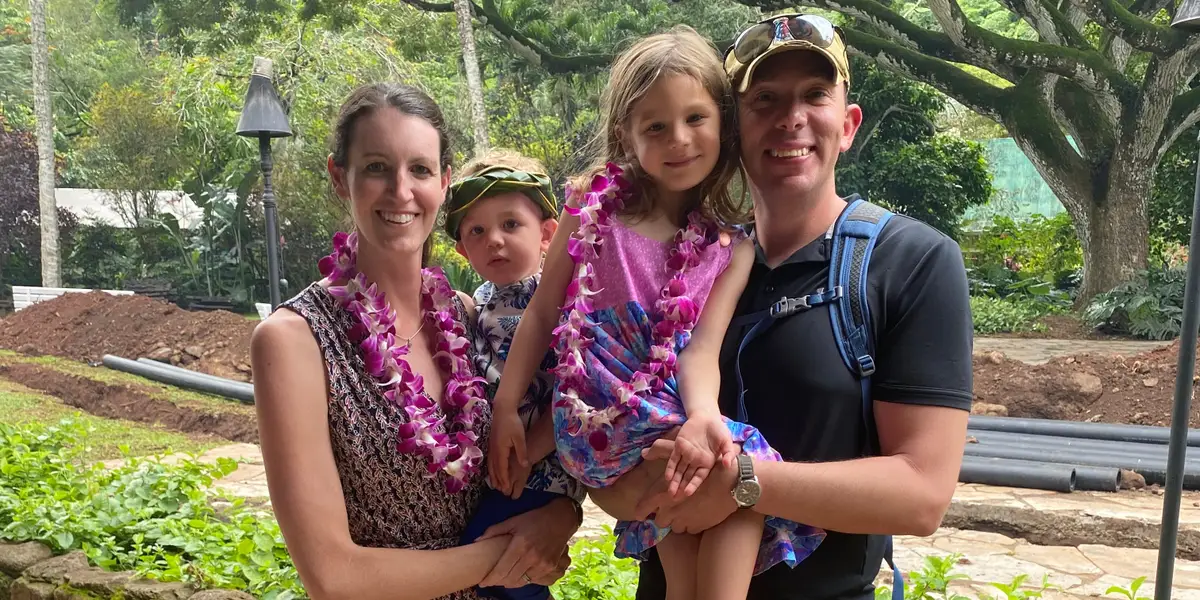Copyright Business Insider

My husband and I started our part-time military marriage the day we got married in two different countries. We were both at work (he in Kuwait and I in Minnesota) when we received emails on our phones congratulating us on our newlywed status. So began our life together as husband and wife. In the 10 years since then, situations such as deployments, rotations, job opportunities, graduate school, courses, field exercises, travel, and training have kept us apart for about half of that time. I didn't know how long he'd be gone Before getting married, I hadn't realized how often military life requires service members to be gone. As a spouse, I had to be prepared for things to change and for my husband to be gone often — from last-minute training exercises to deployment date shifts. You learn to adjust plans, to be flexible, and, in my case, to figure out how to make the most of the time apart. In those early years of our marriage, while living in Savannah, Georgia, we both focused on advancing our careers and studies. I worked on my teaching degree and studied abroad. As a pilot, he attended courses, participated in field exercises, and went on numerous late-night training flights, so our schedules were completely opposite. We were apart more than we were together. But because of this constant "ships in the night" lifestyle, we appreciated our time together even more. We don't hold each other back from opportunities, even if they keep us apart Our big shift came in 2019, just a few months after our first miscarriage. I was at a crossroads — I wanted to become a mother, I had a teaching job, but I also had a good chance of acceptance into the History Ph.D. program at the University of New Mexico. My husband was planning to apply for the military's Physician Assistant school, which would mean nearly two years of schooling in San Antonio. We knew we could make the distance work if we both got into our respective schools, but what if we got pregnant again sometime in between, like we had wanted? His proposal was that if we had a baby, I would still go to school in New Mexico. He would either stay in California or go to San Antonio, both of which were within driving distance from Albuquerque. We would see each other as often as we could, while each pursuing our own higher education. I was accepted to UNM five weeks after I gave birth to our daughter. So began our part-time marriage in the Southwest. We spent summers together in San Antonio, then spent the semesters apart. I flew with our daughter to surprise him on her first birthday. He came home for Christmas. I was a solo parent, but I had the support of my mother-in-law. I was happily taking classes and working toward my Ph.D., giving me back a part of my identity after becoming a mother. We needed to be apart sometimes so that we could be better together We targeted El Paso, Texas, as our next duty station after San Antonio, so that I could still attend classes. Every week, I would drive up with our 3-year-old daughter, drop her off with my mother-in-law, and then continue driving to UNM for graduate seminars. Two days later, we drove back to El Paso to see my husband. We did this for a full year, and I finished my coursework just in time to have our second baby. Living in the Southwest meant that my husband was close to home. He went on a hunting trip with his father, attended a training course in Arizona, and visited his family often, sometimes with the kids to give me a break. Each trip meant more time apart, but in the midst of our busy lives, we also needed our own time. In 2024, when we faced another nine-month overseas separation, we decided I would move to Spain with the kids for my dissertation research during the time apart. I took care of the visas, and we put our things in storage. We all left for Europe that fall — he for Poland, and the kids and I for Spain. We saw my husband twice during that year in Spain, thanks to airline miles. Now, we are all back in the same country again. We're hoping to transition to a more full-time marriage next year, for the sake of the kids, but we are proud of what we've accomplished — both together and independently — in order to maintain our own identities and continue reaching for our goals throughout our marriage.



